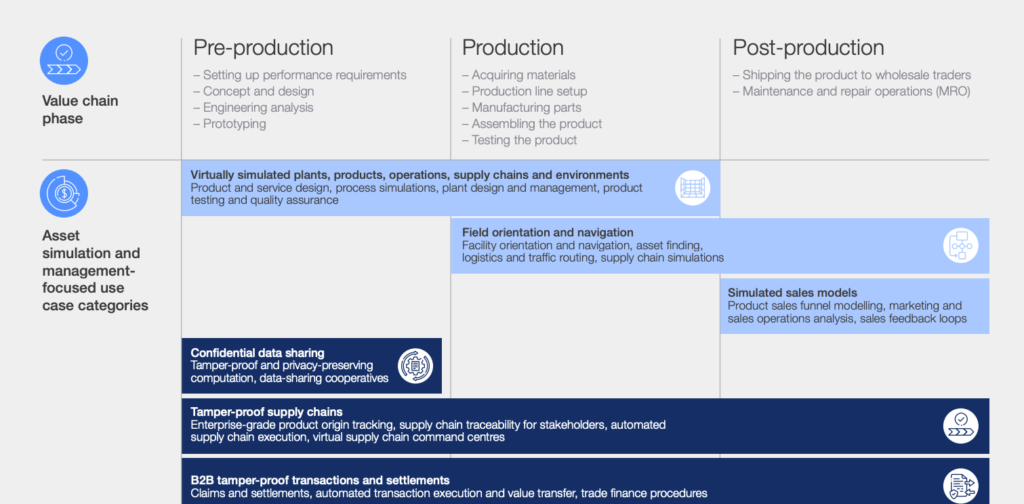
US Manufacturers Embrace the Metaverse
US Manufacturers are increasingly turning to the industrial metaverse to tackle challenges in their production cycles.
According to the World Economic Forum (WEF), an increasing number of US Manufacturers are shifting their focus to the industrial metaverse to address complex difficulties throughout the production cycle.
The World Economic Forum (WEF) revealed in a survey released on March 12 that 92 percent of manufacturing executives in the United States are investigating different methods to incorporate the metaverse into their own companies.
It quoted survey data obtained from one hundred of the largest organizations in ten different industries and it indicated that on average, each executive was examining up to six distinct use cases within their organization.
Additionally, the World Economic Forum (WEF) brought attention to the fact that one factor driving interest is the requirement for the industrial sector to “elevate its ambitions” in response to the effects of the COVID-19 epidemic.
“Amid recovery from the COVID-19 pandemic, a series of technological, macroeconomic, societal and business-to-business (B2B) customer trends are accelerating and converging to create new challenges and opportunities for growth in the industrial sector.”
This has forced US Manufacturers to find ways to boost their production cycles while also improving their efficiency and cost-effectiveness through predictive forecasting.
The paper highlighted the various ways in which businesses are adopting digital twin technology, which involves the utilization of virtual models to make representations of materials.
Amazon has implemented NVIDIA Omniverse, a cloud services platform, to run simulations to improve warehouse architecture and robot workstation construction.
Similarly, Mercedes-Benz is simultaneously utilizing the platform to design manufacturing assembly facilities. During this time, it was revealed on March 1 that the telecommunications infrastructure company Nokia has been utilizing the metaverse in Australia to potentially assist Cessna aircraft maintenance stationed at remote airports.

Additionally, the pre-production, production, and post-production stages of the product life cycle can all benefit from the industrial metaverse.
To be more specific, activities include the design of products and services, the simulation of processes, the design and administration of plants, the testing of products, and the guarantee of their quality.
“Although real-life applications of the consumer metaverse are still developing, the industrial metaverse is ahead on the adoption curve, aligned with actual problems and business imperatives and driven by on-the-ground implementation.”
US Manufacturers Turn To Technology
The industrial metaverse sector places the information technology and automobile manufacturing industries at the forefront. According to the report, the industries leading the way in terms of investment and activity in the industrial metaverse are aerospace and military, energy, software and platforms, and automotive systems.
On the other hand, due to the development of generative artificial intelligence, certain businesses are hesitant to continue investing in the industrial metaverse.”
This decline is in part due to the rise of generative AI, there is an assumption among many that its emergence has caused the metaverse to retreat into the background,” it observed.
“This decline is a to the rise of advanced artificial intelligence.” Concerns have been voiced regarding the potential adverse effects of the metaverse on other industries, particularly the creative arts industry, even though it is enhancing efficiency in certain parts of the production process.
According to a report that was published on March 8, academics from the United Kingdom concluded that it is required to develop strategies for resolving the enforcement and governance of intellectual property issues in the metaverse.“
The inherent resistance to change or correction that blockchain possesses undermines the ability to manage or update intellectual property rights flexibly,” the experts have highlighted.





